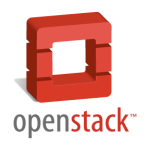
The administration of the large-scale production cloud environments requires the management of dozens of customer’s virtual servers (OpenStack Instances) in the cloud on the daily basis. Manual configuration of the multiple newly created Instances in the OpenStack cloud at a time would be problematic for cloud administrators. Luckily, OpenStack is equipped with metadata service cooperating with the so-called cloud-init script, which together do the magic of automated Instances’ mass configuration.
Metadata service runs usually on Controller node in multi-node environment and is accessible by the Instances running on Compute nodes to let them retrieve instance-specific data, like IP address or hostname. Instances access metadata service at http://169.254.169.254. The HTTP request from Instance either hits the router or DHCP namespace depending on the route in the Instance. The metadata proxy service adds Instance IP address and Router ID information to the request. The metadata proxy service sends this request to neutron-metadata-agent. The neutron-metadata-agent service forwards the request to the nova-api-metadata server, by adding some new headers, i.e. Instance ID, to the request. The metadata service supports two sets of APIs: an OpenStack metadata API and an EC2-compatible API.
Read More


